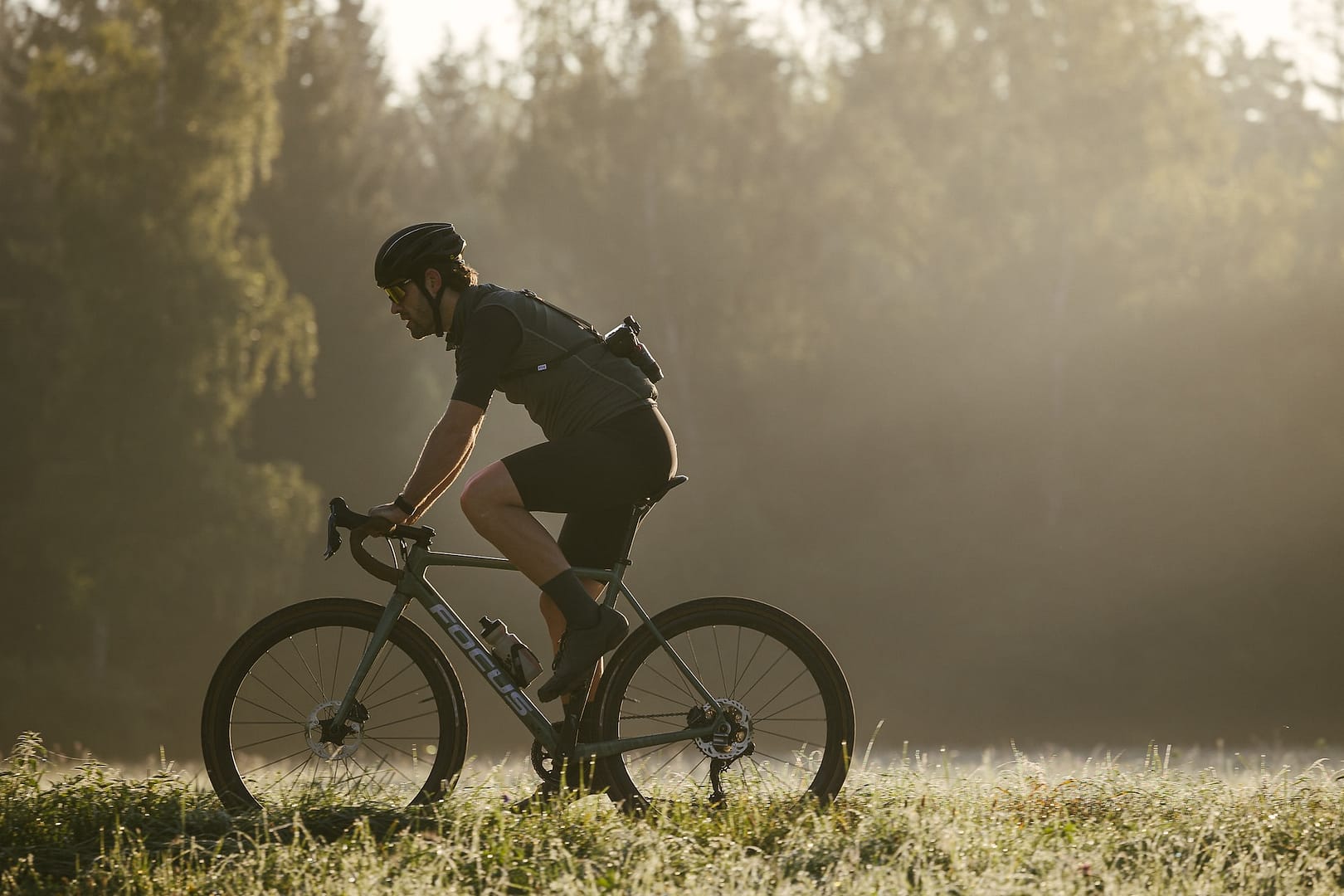Cycling has long been a cherished activity in Scotland, offering a unique way to explore its picturesque landscapes, from the rugged Highlands to the tranquil Lowlands. However, as with any mode of transportation, cycling is not without its risks. This article delves into the world of cycling accidents in Scotland, exploring where these accidents most commonly occur and discussing whether it is indeed safe to cycle in this beautiful part of the United Kingdom. We will also lay out the steps you should take when making a personal injury claim.
The Beauty of Scottish Cycling
Before we delve into the nitty-gritty of cycling accidents in Scotland, let’s take a moment to appreciate the allure of cycling in this remarkable country. Picture yourself pedaling along the banks of Loch Ness, with its mysterious waters stretching out before you and the wind whispering through the Scottish pines. Or perhaps you’re cycling through the bustling streets of Edinburgh, catching glimpses of historic landmarks like the Edinburgh Castle and Holyrood Palace. Scotland offers cyclists a treasure trove of stunning landscapes and cultural experiences.
Is It Safe to Cycle in Scotland?
While cycling in Scotland can be a breathtaking experience, the question of safety often arises. Many potential cyclists wonder if it’s safe to traverse Scotland’s roads and trails on two wheels. The answer, like most things in life, is not entirely black and white.
The Good News
Firstly, the good news. Scotland boasts a growing network of dedicated cycling paths and lanes, making it easier and safer for cyclists to navigate urban areas and connect with the countryside. This commitment to cycling infrastructure has led to an increase in cycling’s popularity as a means of transportation and leisure activity.
Furthermore, Scotland is home to numerous cycling clubs and organizations that promote safe cycling practices and advocate for cyclist rights. These groups work tirelessly to ensure that cyclists are not only protected on the road but also have their voices heard in local and national policy decisions.
The Not-So-Good News
On the flip side, like any other place in the world, cycling accidents do occur in Scotland. These incidents range from minor scrapes to more serious collisions, and they often leave cyclists wondering about the overall safety of their chosen mode of transportation.
Where Do Most Cycling Accidents Occur?
Understanding where cycling accidents are most likely to happen can be a valuable tool for cyclists looking to minimize their risk. While it’s impossible to eliminate all risks, knowledge is a cyclist’s best friend when it comes to staying safe on the road.
Urban Areas
Unsurprisingly, the majority of cycling accidents in Scotland occur in urban areas, including cities like Glasgow and Edinburgh. The high population density, busy traffic, and complex road systems all contribute to a greater likelihood of accidents.
Junctions and Intersections
Junctions and intersections are notorious hotspots for cycling accidents. The complexity of these areas, with multiple roads converging, can lead to confusion and a higher risk of collisions. Cyclists and motorists alike must exercise extreme caution when navigating these zones.
Rural Roads
While the picturesque countryside of Scotland may seem like an idyllic place to cycle, rural roads have their own set of challenges. These roads often lack dedicated cycling lanes, leaving cyclists to share the road with motor vehicles. Additionally, the winding nature of many rural roads can make visibility a challenge, especially in adverse weather conditions.
Coastal and Mountainous Regions
Scotland’s dramatic coastal and mountainous regions are a draw for cyclists seeking a more challenging ride. However, these areas also come with increased risks. Steep descents, sharp turns, and rapidly changing weather can catch even experienced cyclists off guard.
During Nighttime
Cycling accidents are more likely to happen at night, when reduced visibility can lead to dangerous situations. It’s crucial for cyclists to equip their bikes with proper lighting and reflective gear and to exercise extreme caution when riding after dark.
Safety Measures for Cyclists
To reduce the risk of cycling accidents in Scotland, cyclists can take several safety measures:
Wear Helmets
Wearing a helmet is one of the most effective ways to protect yourself in the event of an accident. It’s a simple step that can make a significant difference in your safety.
Be Visible
As mentioned earlier, visibility is key, especially when cycling at night. Make sure your bike has proper lighting, and wear reflective clothing to increase your visibility to motorists.
Follow Traffic Rules
Cyclists are subject to the same traffic rules as motorists. Obey traffic signals, stop signs, and right-of-way rules to ensure a smoother flow of traffic and reduce the risk of accidents.
Use Hand Signals
Hand signals are an essential means of communication between cyclists and motorists. Use them to indicate your intentions to turn or stop, allowing others on the road to anticipate your movements.
Stay Alert
Remaining attentive while cycling is crucial. Avoid distractions like headphones or using your phone, as they can impair your ability to react to sudden changes in traffic.
Making a Personal Injury Claim with National Claims
At National Claims, we understand that accidents can happen, even to the most cautious cyclists. If you find yourself involved in a cycling accident in Scotland and suffer injuries, we are here to help. We specialize in personal injury claims and are committed to assisting you in seeking the compensation you deserve.
How We Can Assist You
Initial Consultation: Our claims process begins with an initial consultation. You can reach out to us and provide details of your cycling accident. We’ll listen carefully to your story and assess the circumstances surrounding your case.
Gathering Evidence: Our experienced team will work diligently to gather all necessary evidence related to your accident. This may include witness statements, medical records, and any available CCTV footage or photographs from the scene.
Expert Evaluation: We collaborate with medical experts to evaluate the extent of your injuries and the potential long-term impact on your life. This assessment helps us determine the appropriate compensation you should seek.

Conclusion
Cycling accidents in Scotland, while a concern, should not deter you from enjoying the beauty and adventure that this country has to offer. By understanding the potential risks, following safety measures, and being prepared with the support of professionals like National Claims, you can embark on your cycling journey with confidence.
Scotland’s commitment to cycling infrastructure and safety initiatives, coupled with the stunning landscapes that await you, make cycling in this part of the United Kingdom a rewarding experience. Whether you’re exploring historic cities, winding rural roads, or tackling challenging mountainous terrain, your safety is a priority, and it’s within your power to make your cycling adventures safe and enjoyable.
So, is it safe to cycle in Scotland? The answer lies in your hands, as you pedal through the stunning landscapes and historic streets of this captivating country, knowing that safety is a priority for both cyclists and the communities they ride through. And should the unexpected occur, National Claims stands ready to assist you on your journey to recovery and justice.
Contact us now and get started on your claim for your personal injury.
Click below to see why we are one of the most trusted claims management companies in the UK.

We’re proud of our excellent customer reviews
We thrive on delivering exceptional service and ensuring our clients’ satisfaction. Don’t just take our word for it. Check out some of our independent reviews to see what our clients have to say.
Excellent

This firm is excellent, they sorted out my car pay out and injury claim very fast, they always communicate with you all the time.

My accident case was dealt with confidence and with great result of the outcome, especially James kept me informed all the time.

I was very impressed at the way my inquiry was treated. I was listened to attentively and everything I needed to know was explained to me.






